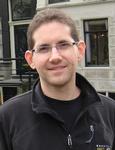Cited By
View all- Erhard JSchinabeck JSchwarz MSeidl HMonat RRubio-González C(2024)When to Stop Going Down the Rabbit Hole: Taming Context-Sensitivity on the FlyProceedings of the 13th ACM SIGPLAN International Workshop on the State Of the Art in Program Analysis10.1145/3652588.3663321(35-44)Online publication date: 20-Jun-2024
- Zang ZThimmaiah AGligoric MJust RFraser G(2023)Pattern-Based Peephole Optimizations with Java JIT TestsProceedings of the 32nd ACM SIGSOFT International Symposium on Software Testing and Analysis10.1145/3597926.3598038(64-75)Online publication date: 12-Jul-2023
- Ozdemir AWahby RBrown FBarrett C(2023)Bounded Verification for Finite-Field-BlastingComputer Aided Verification10.1007/978-3-031-37709-9_8(154-175)Online publication date: 17-Jul-2023
- Show More Cited By



